
Dave Armstrong at the Temple Mount in Jerusalem; Dome of the Rock (the third holiest spot in Islam) in the background (October 2014)
***
(5-14-04)
***
Critique of the full text of the paper, Was Jesus Perfect God and Perfect Man at the Same Time? (from the web page, Islam Answers Back). Mr. Ally’s words will be in blue.
***
According to Orthodox Christian belief, Jesus was perfect man and perfect God at the same time. This belief is necessary for salvation according to the Athanasian creed held dear by most Christians. Modern Christian scholars reject this idea not because it is difficult to understand but because it cannot be meaningfully expressed.
No; they reject it because they are more “modern” than “Christian” and because they have forsaken the historic Christian faith. If a “modern” Islamic scholar had rejected traditional tenets of Islam, would Mr. Ally continue to even call him a Muslim? Would he appreciate a Christian doing so, in making his argument against Islam? I highly doubt it. So Christians would ask to be accorded the same respect and consistency in terminology. He acts as if “orthodox” Christianity is self-evidently inferior to the “modern” versions of “revised Christianity.” Again, if we were to return the favor and say that “modern Islam” is superior to “orthodox [traditional] Islam,” would Mr. Ally appreciate that? It is one thing to disagree honestly with Christianity; quite another to redefine it from the outset according to one’s rhetorical goals, by referring to those who reject traditional Christianity as “modern Christian scholars.”
Both religions obviously are burdened by people who go by the name but no longer believe what the religion has always held. Mr. Ally cites the people who no longer believe a thing to show that the thing is irrational and unworthy of belief. Isn’t that like citing atheists to show how theism is unbelievable, while ignoring what the theists say about it? This is an unfair, somewhat insulting methodology. If Mr. Ally disagrees with Christianity, he can simply produce his own arguments as to why, without incorporating the arguments of people who themselves dishonestly redefine what the word “Christian” means.
It would be far better to not accord the liberals and apostates in both our religions the respect of still referring to them as “Christians” or “Muslims” than to cite such a “Christian” against an orthodox Christian. I wouldn’t do that to a Muslim, and a Muslim shouldn’t do it to a Christian, as a matter of respect for the other’s self-definition and self-understanding, and intellectual consistency.
The doctrine cannot be stated in any way that is free from contradictions. It is impossible for Jesus to have been perfect man and perfect God at the same time, for this would mean that he was finite and infinite at the same time, that he was fallible and infallible at the same time. This cannot be.
Mr. Ally’s “logic” here is “what cannot be.” This is simply not a contradiction because it is one person having two natures, one of which is finite and the other infinite. It would be like saying that of my two arms, one has unlimited power and can lift anything in the universe, while the other does not. That’s not contradictory; it is simply a differentiation between the two arms. A true contradiction would be something like saying that “one arm can lift anything in the universe and cannot do so, at the same time.” Likewise, Jesus has two natures, rather than one, as we have. He is both God and man. As God, He has infinite capacities; as man, He does not. He can, therefore, do some things as God and others as a man, with the usual limitations we are all subject to.
Thus, if Jesus indeed had two natures, as we believe, the difficulty is resolved. If He had one nature that possessed contradictory properties, then there would be a problem. Therefore, the discussion comes down to the possibility or impossibility of God becoming a man who possesses both a divine and a human nature (and the antecedent question of what a nature is). More on this below, concerning God becoming man, and whether this is logically and actually possible or not . . .
What the creed denies is also quite significant. The creed was formulated in response to the claims of various early Christian groups, and so includes clauses that deny the beliefs of those groups. In response to the Arians who believed that Jesus was not God, the Council of Nicea (325 A.D.) decreed that he was fully God. In response to the Apollinarians who believed Jesus was God but not fully human, the council of Constantinople (381 A.D.) decreed that Jesus was fully human.
Those are not “Christian” groups, but heretical groups wrongly claiming the name “Christian.” That brings us back to the definitional problems again. Does not Islam have breakaway groups which no longer adhere to traditional Islamic beliefs? Look at the “Muslim” terrorists for example: the people who flew planes into the World Trade Center. Those were not really Muslims (but they claimed to be). I understand that the original Nation of Islam in America (“Black Muslims”) was such a group (though I may be wrong). They taught that all white men were “devils.” After Malcolm X (a man I admire quite a bit) left that group and took his pilgrimage to Mecca, he saw that this was not true, and that sinfulness was not specifically or particularly confined to one racial group. These counterfeit groups (concerning both Islam and Christianity) can also be designated as such on the basis of false doctrine, not just sinful behavior or beliefs.
Then there was Nestorianism: the belief that started when Nestorius denied that Mary could be called Mother of God. To him, Mary was mother of the human Jesus only. This implied that there were two Christs: one divine, the other human. Against Nestorius, the council of Ephesus (431 A.D.) decreed that the two natures of Jesus cannot be separated. Everything Jesus does is done by both the humanity and divinity in him. Likewise, everything that happened to him happened to both the man and God that he is. Therefore Mary gave birth to both, both died on the cross, etc.
Correct.
At yet another council, the council of Chalcedon (451 A.D.) the creed received some finishing touches and the Athanasian creed was declared official church teaching. Most Christians are not familiar with the detailed implications of the creed and in their own minds conceive of Jesus in the very ways the creed was formulated to deny. This tendency results from the fact that the creeds definition of Jesus is impossible for any human mind to comprehend.
No; it stems from the fact that there are people in all religions who do not adequately study to understand what their own religion teaches in the first place. It is a function of ignorance, not impossibility of comprehension. The Holy Trinity and the Two Natures of Christ are very difficult to comprehend and conceptualize, we freely grant. But that doesn’t make them impossible to rationally accept (with the aid of faith), or contradictory. They are mysteries. Of course, there are mysteries in Islam, also, concerning the nature of Allah that are not fully comprehensible by human minds (if at all). That doesn’t mean they are unable to be accepted and believed. Here are some Islamic beliefs about Allah (many held in common with Christians) which are equally or arguably more difficult to comprehend than the Two Natures of Jesus or the Holy Trinity:
He is The Almighty (al-Jabbar) (omnipotence).[See: al-Baqarah 2:106,117; Âl ‘Imran 3:165,189; al-Anfal 8:41; at-Taubah 9:116; Hud 11:4; an-Nahl 16:40; al-Mu’min 40:68; Ha Mim Sajdah 41:39; ash-Shura 42:49; al-Hadid 57:2]
He is The All-Knowing (al-`Alim) (omniscience).
He is The All-Hearing, The Hearer (al-Sami`) (without sensory organs).
He is The All-Seeing (al-Basir).
He is The Infinite, The All-Embracing (al-Wasi`).
He is The Giver of Life (al-Muhyi).
He is The Self-Subsisting (al-Qayyum).
He is The Self-Sufficient (al-Ghani).
He is The Eternal (al-Azali).
He is The Everlasting (al-Baqi).
He is beyond definition (az-Zukhruf 43:82; al-Mulk 67:12).
A day for Him is a thousand human years (al-Hajj 22:47; as-Sajdah 32:5).
He exists without a place.
He knows what is beyond comprehension.
[See: al-An`am 6:59,73; at-Taubah 9:94,105; ar-Ra`d 13:9; as-Sajdah 32:6; Saba’ 34:48; al-Fatir 35:38; az-Zumar 39:46; al-Hujurat 49:18; al-Hashr 59:22; al-Jum`ah 62:8; at-Taghabun 64:18; al-Jinn 72:26; al-Mudathir 74:31; al-A`la 87:7]
He is unknowable, even though “he is closer to man than his jugular vein” (Qaf 50:15).
Al-Ghazali, arguably the most preeminent Islamic theologian of all time, wrote:
The end result of the knowledge of the `arifin is their inability to know Him, and their knowledge is, in truth, that they do not know Him and that it is absolutely impossible for them to know Him. (Fadlou Shehadi, Ghazali’s Unique Unknowable God, Leiden, E. J. Brill, 1964, p. 37. The `arifin, literally “the knowers”, used by mystics in the sense of “gnostics”)
Does Mr. Ally wish to contend that all Muslims perfectly understand and comprehend all these attributes? I doubt it. Why, then, does he make such an argument where Christians are concerned? I fail to see how the Two Natures of Jesus is a notion of an entirely different order of incomprehensibility than the above attributes of Allah, as believed by Muslims. The concept of impossibility of knowing Allah is but one example that shows this very clearly. If one cannot even possibly know Allah; if He is utterly unknowable because He is so unlike man, then obviously here is one aspect of Allah that is “is impossible for any human mind to comprehend,” precisely what Mr. Ally states about the Two Natures of Jesus!
But Mr. Ally claims that the Two Natures is contradictory, and therefore unable to be believed by anyone. The only problem is that one could not believe in Allah, on the same grounds. So Mr. Ally’s argument clearly proves too much. If what he thinks he has “proven” backfires on his Islamic theology just as much as it “disproves” or renders Christian theology unworthy of reasonable belief, then obviously it is no effective argument against Christian belief (i.e., when offered by a Muslim), and must be discarded as not only false, but blasphemous, according to Mr. Ally’s own Islamic beliefs, because it applies to his own viewpoint in equal or greater measure.
We would (or should) fully expect that there are mysteries and difficult things for the human mind to accept, where God is concerned. He is an extraordinary Being, in both our views. Faith is required, after all, as in all religions. Religion is much more than simply philosophy and human reasoning. God’s revelation, whether believed to be in the Bible or the Qur’an, teaches some things that seem “novel” or “strange” to us, but we accept them because we have faith that these books are revelation: God’s revealing of Himself to mankind. That’s why Christians believe the things we do: based on God’s revelation, not our own human reasoning apart from that revelation (God forbid!).
One can only repeat the words, but cannot grasp the meaning of the required belief. Therefore most just repeat the creed with their lips but in their minds turn to views of Jesus that are less taxing on the intellect, even though those views were declared by the Church to be heretical.
Are there not many Muslims who do the same thing in an Islamic context? This is a secondary, irrelevant issue. It proves nothing more than that many people’s beliefs are inconsistent with the historic, orthodox teaching of their professed religion. The argument has to be made on other grounds. This is merely a variation of the ad populum fallacy.
The orthodox doctrine is logically impossible. As Huston Smith, scholar of comparative religion, points out, it would not have been logically impossible if the creed said that Jesus was somewhat divine and somewhat human.
The exact opposite is true. One cannot be “somewhat divine,” because divinity is absolute and cannot be watered-down or made a part of what it is. It cannot be other than what it is, so it is impossible (logically and in actuality) for it to be “somewhat” present. But divinity and humanity existing side-by-side is entirely conceivable and not logically contradictory, let alone impossible, at all. Mr. Ally once again undercuts his own case by expressing it in extreme terms.
But this is expressly what the creed denies. For orthodox Christians, Jesus cannot possess only some human qualities; he must possess all. He must be fully human. At the same time, he cannot possess only some divine qualities; he must have all.
That’s right. This follows by the very definition of God: Pure Being; the Supreme Being, the Self-Existent One, or, as Muslims say, the Self-Subsisting (al-Qayyum), and Self-Sufficient (al-Ghani) One.
He must be fully divine. This is impossible because to be fully divine means one has to be free of human limitations.
Not if He chooses to become incarnate without yielding up His inherent divine qualities. That’s not impossible at all. To claim that is to limit God’s omnipotence, which Muslims and Christians both accept as an essential attribute of God. In fact, that is probably why Mr. Ally overstates his argument in terms of “impossibility,” because an omnipotent Being is only limited with regard to logically impossible things. Therefore, unless Mr. Ally proves that becoming a man is a logically impossible thing for God (a proposition such as existing and not existing at the same time, etc.), he has no case at all, for God can do anything which is logically possible to do. But Mr. Ally simply hasn’t demonstrated that the Incarnation is a logical impossibility.
If he has only one human limitation then he is not God. But according to creed he has every human limitation. How, then, can he be God?
By being fully God and fully man; having two natures. But Christians believe that Jesus had every human limitation with the exception of sin. Sin results from fallen human beings, and Jesus is not fallen; He is perfectly righteous, being God in the flesh.
Huston Smith calls this a blatant contradiction. In his book The World’s Religions, he writes:
We may begin with the doctrine of the Incarnation, which took several centuries to fix into place. Holding as it does that in Christ God assumed a human body, it affirms that Christ was God-Man; simultaneously both fully God and fully man. To say that such a contention is paradoxical seems a charitable way to put the matter it looks more like a blatant contradiction. If the doctrine held that Christ was half human and half divine, or that he was divine in certain respects, while being human in others, our minds would not balk. (The World’s Religions, p. 340).
If it was said that Jesus was partly human and partly divine that would not be logically impossible but only scripturally impossible.
First of all, technically, Smith did not say it was a contradiction, but that “it looks more like” one. Secondly, he has not shown (at least not in this citation; hence, not in Mr. Ally’s argument) that it must be a contradiction by the rules of logic. Thirdly, he explains the doctrines of the Two Natures and the Trinity in a fairly sympathetic manner in this same work (my copy is called The Religions of Man [New York: Mentor, 1958]; the above citation is on my p. 295). Fourthly, he argues that the strictest interpretation of logic is not always true to deeper realities (as in some scientific ideas). Smith was a philosopher, and his comments here were much more nuanced and subtle than readers would realize, if they had only this one quote to go by. One might argue, then, that it has been pulled out of context. I shall provide that context now, to make Smith’s overall view more apparent:
The Church has always admitted that such assertions are anomalous to man’s present understanding. The question is whether this is the last word on the matter. Actually we can ask the same question of science. There are so many findings in contemporary physics that refuse to be correlated in a single logical framework that Robert Oppenheimer has proposed a Law of Complementarity as the basic working concept in the field, meaning by this (in part) that opposing facts must be held in tension even where logically they are at odds if they can help account for phenomena observed. In more than one field, it seems reality can be more subtle than man’s logic at any given moment. Whenever we are forced to sacrifice either logic or evidence it would seem wise to stick with evidence, for this can lead to a wider logic whereas a rigid adherence to consistency can easily close the doors to ampler truth.. . . A bridge must touch both banks, and Christ was the bridge between God and man . . . To say that Christ was God is to say that the absolute love he embodied is the ultimate fact of the universe. To say that he was man as well is to insist that God’s love is really love, being willing to assume the full conditions of humanity and to suffer . . .
The third crucial concept is that of the Trinity . . . The basis of this doctrine, like the two preceding ones, is contained in the New Testament . . . In his final commission to the Apostles he collects these three persons of the Godhead into a single statement: “Go ye therefore into all the world, baptizing in the name of the Father, and of the Son, and of the Holy Ghost.”
No concept of Christendom has enjoyed a greater reputation for obscurity than this. The Church itself has confessed it to be a mystery, true but beyond the reach of mind to fathom completely. Nevertheless, as nothing important in religion is entirely removed from human experience, here again it is possible to suggest by analogy something of what the doctrine involves . . . .
Every instance of seeing is a real unity. Nevertheless three distinguishable aspects are involved: the object seen, the act of vision, and the mental interpretation . . .
Dorothy Sayers’ play, The Zeal of Thy House, proposes the analogy of the artist’s creative act. First there is the Creative Idea, effortless and serene, beholding the entire work in an instance, a complete and timeless whole; this is the image of the Father. Next, not in time but in enumeration, there is the Creative Energy, working out the Idea in space and time with sweat and passion; this is the image of God incarnate, the Son, the Divine Word. Finally there is the Creative Power, the response the work elicits from the lively soul that perceives it; this is the image of the in-dwelling Spirit. “And these three are one, each equally in itself the whole work, whereof none can exist without [the] other: and this is the image of the Trinity.”
. . . distinctiveness is required by the Godhead itself. For God is love, and love is meaningless except between persons.
(pp. 295-297, 299-301)
The Bible nowhere teaches that Jesus was divine in any way.
This is sheer nonsense. I refer readers to the overwhelming biblical evidence, from my papers, Jesus is God: Biblical Proofs, and The Holy Trinity: Biblical Proofs. I always say that to not see such evidence, proven by literally hundreds of passages, is the equivalent of looking up in the sky and not seeing the sun at high noon on a clear summer day. Again, if one chooses to not accept the New Testament as inspired divine revelation, that is one thing, but to deny that it teaches what it clearly does teach (believe it or not) is quite another.
Furthermore, if he was only partly divine then he was not the One True God of the Old and New Testaments. God is All-Powerful, not somewhat all-powerful; God is All-Knowing, not somewhat all-knowing.
Exactly; that’s why we believe He is fully God and fully human, in two natures. Being partially divine is nonsensical, and impossible by the nature of things, in both religions, as Mr. Ally shows.
C. Randolph Ross is a Christian. In his book Common Sense Christianity he debunks the orthodox view not because it is difficult to understand, he says, but because it cannot meaningfully be said. He rejects it because it is impossible, he says. (Common Sense Christianity, p. 79).
Here we go again, with the re-defining of terms (if he is not orthodox, he is not a Christian, as there is only one correct Christian belief, and in this matter, it is trinitarianism and the Two Natures), and extravagantly excessive and wishful claims. To demonstrate that Ross is no Christian at all, but that he denies beliefs concerning God that Muslims and Christians hold in common, I would like to cite a review of this book on amazon.com, from one Brian Albert:
He loses me in chapter three when he argues that since his common sense won’t allow him to believe that a loving God can allow suffering, therefore God must not affect and must not even be in charge of earthly events. Having made that assumption, he goes on to say that the Bible is in error wherever it reveals God to be omnipotent, a loving Father (what kind of father isn’t involved in his children’s lives?), or an indwelling counselor. He believes Jesus performed no miracles except for a few faith healings.Using his common sense again, he states that Jesus is not really equivalent with God, because he doesn’t see how man and God can exist in one being. He says that all the writings of John and Paul that reveal Jesus to be God are either flawed theology or have been misinterpreted. He also believes that no atonement is necessary for sin, so the crucifixion and resurrection are religiously unimportant.
I may be an independent thinker, but I believe that the Bible must be an accurate representation of who God is, what He has done for us, and what He expects from us. Mr. Ross throws most of it away, reducing his religion mostly to the three synoptic gospels. However, even the synoptics clearly show Jesus to be God (“When the Son of Man comes in His glory and all the angels with him, …” Matt 25:31) and God to be very much involved in the lives of His children (“Are not two sparrows sold for a penny? Yet not one of them will fall to the ground apart from the will of your Father” Matt 10:29).
This is Christianity? Hardly! It is a classic case of someone who no longer believes in Christianity, trying to dishonestly co-opt the name, while thoroughly redefining it beyond all recognition. And to use such a person to argue against Christianity is a highly-objectionable method, per my remarks near the beginning of this paper. He simply is not a Christian to begin with. Once one denies the Trinity within an alleged Christian framework, they almost always reject other central doctrines, too. So Ross denies that God is all-powerful. He is no longer sovereign, and the Bible states falsehood wherever it states this.
But he (unlike Mr. Ally) knows full well that the writings of Paul and John clearly teach the divinity of Christ. So, rather than denying this, he simply concludes that those books are not trustworthy. At least in this way he is more internally consistent than Mr. Ally is. The crucifixion and resurrection are unimportant in Ross’s view, yet Mr. Ally considers this man a Christian? Has Mr. Ally ever heard of the holy days of Good Friday and Easter?
Thus we see the seriously-flawed nature of the citations Mr. Ally has brought to the table thus far. Huston Smith was cited incompletely, and his fully-expressed view is far closer to my perspective than the point of view that Mr. Ally is setting forth. C. Randolph Ross, on the other hand, introduced as a “Christian,” is severely skeptical of the Bible itself. He rejects beliefs that are central to Christianity by any conceivable sensible, traditional definition of the term, and even beliefs such as the omnipotence of God, which Muslims and Christians both adhere to. Furthermore, he rightly assumes that St. John and St. Paul taught the divinity of Christ (at least if we grant that the books by their name reflect their opinions), and so simply rejects their writings, whereas Mr. Ally denies that the entire New Testament teaches the divinity of Jesus.
In both cases, they simply reject (for all the wrong reasons) beliefs which are unacceptable to them. One denies in a sweeping fashion what the New Testament clearly teaches, and the other holds that those portions of the Bible which teach the divinity of Christ more plainly than others are not part of the “real” New Testament in the first place.
His arguments are so persuasive that I can do little better than just repeat them. To be human means to be limited, lacking in knowledge, prone to mistakes, imperfect. To be God means just the opposite: unlimited, complete in knowledge, infallible, perfect. You cannot have it both ways. You cannot say of one person that he was both. Either he was one or the other.
That has been covered above, but I will get in more depth below, by offering several different arguments suggesting the plausibility of the Two Natures and the Holy Trinity.
THIS IS NO PARADOX
To those who say this is a paradox, Ross answers nicely. It is important to understand first of all what is a paradox. A paradox is something that seems impossible but can be demonstrated to be true. On the other hand, the creedal statement may seem true to some people but logic demonstrates it to be false. Ross argues with an example that makes the point succinct:
Ah! some will say. Thats the paradox! No, it isnt a paradox. This is a very important point, so please take special note: a paradox is something which seems impossible but which is demonstrably true. Thus, it was a paradox when some scientist carefully analyzed bumblebees and concluded that according to the laws of physics they couldnt fly. There was contradiction and apparent impossibility, but bumblebees kept on flying.However, for an individual to be both perfect and imperfect is the reverse of this: it may seem true to some, but it is demonstrably impossible. And not just impossible according to our understanding of the laws of nature, which can be wrong (as with the bumblebee), but impossible according to the rules of logic upon which all our reasoning is based. (p. 82)
Let me elaborate this last point.
I’m glad, because, once again, the citation does not by any means prove Ross’s assertion.
Human observation and analysis can turn out to be incorrect. This was the case with the scientist who figured that according to the laws of Physics bumblebees could not fly. The flaw in his procedure is that our understanding of the laws of nature is always improving. New knowledge often declare old to be false. But with the rules of logic things are different. What is true by definition will always remain true unless we start redefining things. For example, 2+2=4. This equation will always remain true. The only way this can ever become false is if we decide to change the definitions of the component parts.
I agree, as far as this goes. It is in the false application of logic to the question at hand, where Mr. Ally goes astray.
Now, by definition, a thing cannot be the opposite of itself. A thing cannot be perfect and imperfect at the same time. The presence of one of these qualities implies the absence of the other. Jesus was either one or the other. He cannot logically be both. Ross is very eloquent on this:
To say someone is perfect and imperfect is like saying that you saw a square circle. This is an impossibility. Are you saying the circle was not round, in which case it was not a circle? Or are you saying the square was circular? This is not a paradox; this is meaningless nonsense, however imaginative it might be. (p. 82)
To develop this point further, I tried to relate it to what can and cannot be said about Jesus according to the creed. In the diagram we see a figure that is somewhat round and somewhat square. It is unorthodox to say that Jesus was somewhat man and somewhat God. Even the models that combine a circle and a square one inside the other do not work, for in each case you have two objects clearly separable. Orthodoxy does not allow this for the two natures of Jesus. To satisfy the requirements of orthodoxy we must find an object which is at once a circle and a square. By definition, such an object cannot exist (see accompanying diagram, next page).
But this is not what the doctrine entails; it is a distortion of the Two Natures. The very fact that there are two natures saves it from contradiction. One Person who has Two Natures: a Divine Nature and a Human Nature. Therefore, it is not expressing the following scenario, which is indeed contradictory:
1. Jesus is a person who is represented by a square and only a square (humanity).
*
2. Jesus is a person who is represented by a circle and only a circle (divinity).
Rather, the doctrine holds:
1. Jesus is a Divine Person.
2. A Divine Person is such that (unlike a merely human person) He can remain Divine while incorporating also a human nature (the Christian doctrine of the Incarnation; literally, “taking on flesh”).
3. Jesus is a Divine Person such that he can possess a divine nature (a “circle”) and a human nature (a “square”).
4. The two natures differ, but exist side-by-side, as attributes of one Divine Person.
Five Models That Fail to Demonstrate the Two Natures of Christ in Christian Theology:
1. A circle representing divinity. This fails because Christ is said to be both divine and human.
2. A square representing humanity. This fails because Christ is said to be both divine and human.
3. An object somewhat square and somewhat round, representing humanity and divinity. This fails because Christ is said to be completely divine and completely human.
4. One object inside another [Dave: a circle inside a square, per the diagram]. This fails because they say that God became man, not just that God was inside the man.
5. A square inside a circle. This fails for a reason similar to #3.
The One Model That Demonstrates the Two Natures of Christ in Christian Theology:
6. See if you can draw here any diagram to show how Christ can be God and man at the same time.
Sam Shamoun, a Reformed Protestant and critic of Islam, has answered this challenge quite adequately, I think (in personal correspondence to me):
This first part I got from Alister McGrath in one of his books: The problem with the squared circle analogy is that it assumes that God and man, much like squares and circles, belong to the same category. For instance, both squares and circles belong to the same category of shapes, but God and man belong to two different categories of Being.
Hence, one can take things from two different categories and unite them, for instance you can have a red circle or a blue square since one belongs to the category of colors and the other belongs to the category of shapes. Likewise, God can unite himself to the category of man without ceasing to be God since it is within his ability to do so. Man cannot do so since it is not within his capacity.
Secondly, even assuming that the analogy with a square and circle validly described the Incarnation, this still doesn’t entail a logical contradiction. They actually are gross misrepresentations of the doctrine.
For instance, a more valid example would have been to take a square and attach it to a circle. In other words, you would have a square and a circle united to each other, coexisting side by side. You would not have a squared circle, nor would you place a square within the circle or the circle within the square. You would have instead a square and a circle coexisting together at the same time.
The difficulty is not with believing what the creed says. The problem is that the creed in effect says nothing. When we are told two opposites what then are we to believe? Ross puts it nicely:
To say that someone is perfect and imperfect at the same time is to say that X and not-X can both be true. This is either to abandon the meaning of these words or else to abandon logic, and in either case this means we are speaking nonsense that can have no meaning for us. (p. 82)
The orthodox say that Jesus was imperfect with regards to his human nature but perfect with regards to his divine nature. The problem with this position is that it implies the existence of two persons occupying the one body of Jesus: one perfect, the other imperfect. You need for this two minds, two wills, two characters. But the creed does not allow this necessary conclusion and insists that Jesus was not two persons but one only. Now, this one person had to be either perfect or not, infallible or not, unlimited in knowledge or not. You cannot say of the same person that he was both.
Two Natures; two Natures, in one Divine Person!
Now let us closely examine this assertion that the Incarnation and the Two Natures of Jesus (and by inevitable implication, the Holy Trinity also) are logically impossible, meaningless propositions. Upon close scrutiny, all these arguments utterly collapse, and it will be plain to see that they do, and why they do.
First of all, the most obvious difficulty has to do with God’s omnipotence, which Muslims and Christians both accept. Now, the claim is that God could not become a man, because it is “logically impossible” (God and man being different and thus, unable to be merged in a single being). This involves a logical absurdity, seen in the following straightforward chain of reasoning:
1. God is omnipotent, meaning that He possesses all power and can do everything which is logically possible to do.
2. God created man out of nothing, as Creator (which is a function of His omnipotence and His nature as the Essential, Pure, Self-Existent, Self-Sufficient, Self-Subsisting, Infinite, Eternal Being).
3. Furthermore, we are told that man was created in God’s image (Genesis 1:27).
[Muslims have traditionally believed that the Old Testament and especially the first five books, or Torah, is an inspired revelation. See: What Does the Qur’an Say About the Jewish and Christian Scriptures?, by Samuel Green]
4. And God, on several occasions, took on human form, according to the Old Testament (what are known as “Theophanies”):
GENESIS 18:1 And the Lord appeared unto him in the plains of Mamre: and he sat in the tent door in the heat of the day. (KJV; cf. 18:13, 17, 22)
GENESIS 32:24, 30 And Jacob was left alone; and there wrestled a man with him until the breaking of the day . . . (30) And Jacob called the name of the place Peniel: for I have seen God face to face, and my life is preserved. (cf. 35:9-15)
EXODUS 24:10 And they saw the God of Israel: and {there was} under his feet as it were a paved work of a sapphire stone, . . .
ISAIAH 6:1 In the year that king Uzziah died I saw also the Lord sitting upon a throne, high and lifted up, and his train filled the temple.
EZEKIEL 43:6-7 And I heard {him} speaking unto me out of the house; and the man stood by me. (7) And he said unto me, Son of man, the place of my throne, and the place of the soles of my feet, where I will dwell in the midst of the children of Israel for ever, and my holy name, shall the house of Israel no more defile, . . .
5. God also appeared in the form of the “Angel of the Lord.” An angel is a creation, not an eternal being, so if God appeared as an angel, He assumed a form and a nature (as in the Theophanies above) that is not intrinsically God; much like the Incarnation itself:
JUDGES 2:1 And an angel of the Lord came up from Gilgal to Bochim, and said, I . . . have brought you unto the land which I sware unto your fathers; and I said, I will never break my covenant with you.
JUDGES 6:12, 14 And the angel of the Lord appeared unto him, and said unto him, The Lord {is} with thee, thou mighty man of valour . . . (14) And the Lord looked upon him, and said, Go in this thy might, and thou shalt save Israel from the hand of the Midianites: have not I sent thee? (cf. 6:16, 20-23)
ZECHARIAH 12:8 In that day shall the Lord defend the inhabitants of Jerusalem; and he that is feeble among them at that day shall be as David; and the house of David {shall be} as God, as the angel of the Lord before them.
(cf. Genesis 31:11-13; Exodus 3:2-6, 14-16; Joshua 5:14-15)
6. What do these Theophanies suggest? The Bible described God as able to be “seen” in the above passages, and others (such as Genesis 17:1, 33:11, Numbers 12:7-8, Deuteronomy 34:10, Judges 13:22, and Isaiah 6:5). For those who deny the incarnation of Christ, Theophanies do show that the notion of God becoming a man is not altogether incomprehensible or impossible, but rather, downright plausible. Theophanies might be considered precursors (along with verses such as Isaiah 9:6 and Micah 5:2) of the incarnation of the Messiah Jesus, the Son of God. Now how is it possible for the invisible God, Who is a Spirit, to be seen, and to have a body? Yet this is what we are told in the Old Testament. This is scarcely any different from the incarnation, yet Mr. Ally tells us that the latter is “logically impossible”!
7. How is it, then, that Mr. Ally believes that the incarnation cannot possibly happen, based on purely logical considerations? We start with an omnipotent God. He makes man in His image; He appears as a man; He appears as the angel of the Lord (and angels are not eternal, and they are creatures; so this — like the Theophanies — is a supposed “contradiction” since it opposes God’s Nature). He can and does do all that, yet supposedly He can’t become a man. This is what is logically absurd, not the incarnation, as seen in the following logical chain:
A. God has all power.
B. God appeared as a man, supposedly “contrary” to His nature as invisible, eternal, and a non-creature (which man is).
C. God appeared as an angel, supposedly “contrary” to His nature as invisible, eternal and a non-creature (which an angel is). Angels are normally invisible, but they can materialize, and 1 Corinthians 15:35-44 hints that they can have “celestial” or “spiritual” bodies.
D. God created man in His own image.
E. But God cannot become a man. This is logically impossible.
Oh??!! How is it logically impossible for a Being with all power, Who appears as a man and an angel, and Who creates man in His own image, to become a man? By what ironclad, indisputable logic do we completely distinguish the concepts of appearing like a man or an angel in all outward aspects, and becoming an actual man? Certainly the two notions are quite close, and if one is actual, we cannot plausibly rule out the other concept as “impossible.” We might be able to reasonably infer (apart from revelation and faith considerations) that it didn’t happen in fact, but we can’t reasonably infer that it is “logically impossible.”And that is because of the well-known maxim and prior widely-accepted axiom that “the stream can’t rise above its source.” If God can make a man, He can easily become one, without yielding up His divinity, which cannot by definition ever be given up. To say that He could not do so would be to say that a mere creature possesses attributes (existence in human form) that the Almighty God does not and cannot possess, and that is absurd.
Contingent and derivative creatures can never be greater than their own cause: the First Cause and Prime Mover and Creator of all: the Almighty God. If God switched from being God to being a mere man, that would be absurd, because of the immutability (unchangeability) of God. But if He takes on human nature in addition to His Divine Nature, which He always has, and cannot ever lose, it is no contradiction at all; it is simply part and parcel of His omnipotence. The legitimate reasoning chain, therefore, works as follows:
A. God has all power.
B. God created man.
C. Man has the attribute of existence in human form.
D. Therefore, existence in human form is logically possible, because it exists and is manifestly apparent.
E. An omnipotent God can do all that is logically possible.
F. Existence in human form is logically possible (D).
G. Therefore, God can so exist as well (while simultaneously and necessarily remaining God), since He created the human form, and made the human form in His own image, and even assumed it in the Theophanies (and in angelic forms).
H. Otherwise, He is not omnipotent, for man would be able to do something (exist as a man) that the very Creator of man, Whose image man reflects, cannot do.
I. Omnipotence is central to the definition of God. Therefore, H must be false (granting the theistic nature of God), and G must be true.
J. Ergo, the Incarnation is not only not logically impossible; is quite plausible from reason alone, and an actuality, based on reason and revelation and historical argument.
When Jesus faced death on the cross according to Christian belief, either he faced it with the human belief that he would be raised on the third day, or he faced death with the infallible knowledge that he would be so raised. If he believed with human faith in Gods power to raise him then he himself was not God. If, on the other hand, he faced death with infallible divine knowledge that he would be resurrected, then he was not taking any real risk in letting himself die. If the divine nature in him knew he would be raised, but he did not know this, then it was not his divine nature. If the divine nature knew something he did not, we are back to two persons.
Not at all, based on the above reasoning. This is thoroughly muddleheaded and inconsistent and incoherent. First of all, false dichotomies are created. Even if Jesus were merely a human being, God could have supernaturally given Him the knowledge that he was to die on a cross, so we need not choose between “human belief and faith” and “divine infallibility.” Secondly, we know from many passages in the New Testament that Jesus knew what was to happen, while simultaneously having some of the usual human limitations and divine attributes as well, in His divine nature. He didn’t “believe” it, He knew it. He even stated that this was the purpose He had come to earth from heaven. So this shows He is God in the flesh.
Thirdly, as for knowledge of what was to happen meaning that it was no “risk,” this is a non sequitur, since the nature of His death was one of the most terrible known to man, and His isolation and taking on the sins of the whole world was an unfathomably horrible, unimaginable suffering. Fourthly, He not only knew what was to happen, and that He would be resurrected, but He resurrected Himself, which only God can do. But the Bible also says that God the Father and the Holy Spirit raised Him. This is a clear proof of the Trinity in the Bible:
GALATIANS 1:1 . . . God the Father, who raised him from the dead;) (cf. 1 Thess 1:10) (KJV)
ROMANS 8:11 . . . the Spirit of him that raised up Jesus from the dead dwell in you, . . .
JOHN 2:19 Jesus answered and said unto them, Destroy this temple, and in three days I will raise it up.
JOHN 10:17-18 Therefore doth my Father love me, because I lay down my life, that I might take it again. (18) No man taketh it from me, but I lay it down of myself. I have power to lay it down, and I have power to take it again. This commandment have I received of my Father.
This could get more difficult to explain as we look at the deeds reported of Jesus in the gospels and ask whether the divine or human nature or both performed those deeds.
Jesus performed all of them, and he possessed both Natures, so this is another non-issue and non sequitur. It’s a red herring.
Let us consider the episode where Jesus curses the fig tree. First, the account as it appears in Mark:
Jesus was hungry. Seeing in the distance a fig tree in leaf, he went to find out if it had any fruit. When he reached it, he found nothing but leaves, because it was not the season for figs. The he said to the tree, May no one ever eat fruit from you again. (Mark 11:12-14, NIV)
As a result, the tree withered from the roots (v. 20). Now, a few things are clear from this episode.
1. Jesus did not know the tree had no fruit until he went up to the tree and found nothing but leaves.
That doesn’t follow. The passage might be in phenomenological or observational terms: simply describing the situation as a normal being would perceive it. Or, it could simply be an instance which is describing His normal human limitations. That doesn’t mean that He ever ceased having the quality of omniscience in His Divine Nature.
2. When Jesus saw leaves from a distance he hoped to find fruit on the tree.
3. It was not fig season, and this is why the tree had no figs. This comment from Mark clearly, implies that it was a perfectly good tree. If the tree was barren, Marks comment about the season would have been pointless and misleading.
4. Jesus did not know it was not fig season. If he had known this, he would not have expected the tree to have fruit, and he would not have cursed the tree for having no fruit.
5. The whole thing began when Jesus felt hungry.
All of this is so much ado about nothing, since the whole point of this passage is as a parable, which was a teaching device to make a point. It was not an ontological treatise on the Nature of God or the Incarnation. For further reading and an in-depth discussion of the fig tree and other excellent related material, see Sam Shamoun’s article (also in response to Shabir Ally): A Christian Response to “Jesus is Not All-Powerful, and Not All-Knowing.”
Now it is easy to understand that the human Jesus felt hunger, and that the human Jesus did not know it was not fig season and so mistakenly expected the tree to have fruit. A divine Jesus would have known all these, and would not have to go to the tree to discover it had no fruit; he would not have been hungry in the first place.
Jesus had both Natures. God as an omnipotent Being can willingly limit Himself if He so chooses, insofar as the Incarnation is concerned (per the reasoning in my logical chains above). This is clearly expressed in Philippians 2:5-7 (RSV):
. . . Christ Jesus, who, though he was in the form of God . . . emptied himself, taking the form of a servant, being born in the likeness of men.
Now the cursing of the tree is a little more difficult for those who assert the divinity of Jesus. His miracles, they say, are performed by his divine nature. Okay, so the divine Jesus cursed the tree. But why? Why ruin a tree which in Marks view was a perfectly good tree? Come fig season this tree would have had fruit and others could have eaten from it. The reason was that the human Jesus made a mistake. But why did the divine Jesus act upon the mistake of the human Jesus? Does the human mind in Jesus guide the divine nature in him?
This is all beside the point of the act and the parable Jesus wished to convey: that physical obstacles could not hinder the disciples in following God; rather it was lack of faith. Thus, when they saw that the tree had withered (Mark 11:20), Jesus uses it as a lesson to enjoin faith (11:22-24), using an exaggerated example of a mountain being cast in the sea by virtue of faith.
Actually, there is no warrant for all this speculation, for scripture nowhere says that Jesus has two natures. Those who want to believe contrary to scripture that Jesus was fully human yet fully divine can go on speculating.
Again, it is all over Scripture, which shows Him with human limitations, but simultaneously with divine characteristics. Philippians 2:5-8, which I partially cited not far above, states it fairly explicitly. John 1:1, 14, 18 states both notions also:
In the beginning was the Word, and the Word was with God, and the Word was God . . . And the Word became flesh and dwelt among us . . . No one has ever seen God; the only Son, who is in the bosom of the Father, he has made him known. (RSV)
It is true that the doctrine developed historically (as all doctrines do), but all essentials necessary for it are clearly present in Scripture. Even Mr. Ross, whom Mr. Ally cites (describing him as a “Christian”) against the doctrine, knows this, because he rejects the writings of Paul and John rather than accept what they plainly teach (because he has decided he doesn’t like them, and doesn’t care what is taught in the Bible).
Some will say that everything is possible with God, and that we are using words here with their human meanings. This is true. Everything is possible with God. We believe that. If you tell me God did such and such and He is such and such I cannot say it is impossible. But what if you say God did and did not, or He is and is not? Your statements are meaningless. When you say that Jesus is perfect God and perfect man at the same time you are saying two opposite things. Therefore, I reply, Impossible!
This is untrue, as shown. Simply repeating his fallacious logic over and over does not make Mr. Ally’s flawed argument become a true one.
So what we need here is to hear it said with meaning. If you think that the words have a different or deeper meaning, when applied to God I cannot help agreeing with you. But I would like to know with what meaning you are using those words. Ross explains:
If you wish to redefine some of these words, thats fine, as long as you can tell us the new meanings that you are using. The usual practice, however, seems to be to say that while one cannot say precisely what these new meanings are, one is nevertheless sure that they fit together in a way that makes sense. This, of course, is simply an effort to duck the requirements of logic. But if you do not know the meanings of the words which you are applying to Jesus, then you are simply saying Jesus is X and Jesus is Y, X and Y being unknowns. This, of course, is to say nothing at all. (p. 83)
As a result of this confusion, many Christians revert to the idea that Jesus had two natures that are separable. Sometimes he acts as a human and sometimes he acts as God.
So what? The God of the Old Testament does the same thing. When He took the form of a man, and wrestled with Jacob, He was acting as a human. When He creates and predicts the future, and judges whole nations, and does other extraordinary things like that, He is acting as only God can act, and how man cannot act. So where is the beef? This is simply irrelevant, illogical skepticism, typical of a man who was arrogant and absurdly self-important enough to pick and choose what he wants to believe in the Bible, and reject the rest, yet continue to call this “Christianity.” What would Mr. Ally think of a Muslim who treated the Qur’an so disrespectfully, arbitrarily, and with such contempt? If he wouldn’t allow that (as I suspect, or hope, anyway), then why does he use such a man as a central “plank” in his argument against Christianity? Why doesn’t he just go to the Bible, which he knows that real Christians (unlike Mr. Ross) actually accept as inspired revelation?
This, of course, is not supported by scripture, and it would have been wiser to move to the scriptural position that Jesus was a man and a servant of God (See Matthew 12:18, Acts 3:13, Acts 4:27 in the Holy Bible, Revised Standard Version).
Mr. Ally is welcome to refute all the hundreds of evidences to the contrary, that I have compiled in my papers, Jesus is God: Biblical Proofs, and The Holy Trinity: Biblical Proofs.
William Ellery Channing is one of many Christians who have moved to that scriptural position. He wrote thus:
Where do you meet, in the New Testament, the phraseology which abounds in Trinitarian books and which necessarily grows from the doctrine of two natures in Jesus? Where does this divine teacher say, “this I speak as God, and this as man; this is true only of my human mind, this only of my divine? Where do we find in the Epistles a trace of this strange phraseology? Nowhere. It was not needed in that day. It was demanded by the errors of a later age.We believe, then that Christ is one mind, one being, and, I add, a being distinct from the one God. That Christ is not the one God, not the same being with the father, is a necessary inference from our former head, in which we saw that the doctrine of three persons in God is a fiction . . . . Jesus, in his preaching, continually spoke of God. The word was always in his mouth. We ask, does he by this word ever mean himself? We say, never. On the contrary, he most plainly distinguishes between God and himself, and so do his disciples. (William Ellery Channing, Unitarian Christianity and Other Essays, edited by Irving H. Bartlett (U.S.: Liberal Arts Press, 1957) pp. 17-18)
I appeal to my two papers above. Channing is as abysmally misinformed about the content of the Scriptures as Mr. Ross and Mr. Ally are (with all due respect). I don’t claim to “know” about the Qur’an (“knowledge” that a Muslim like Mr. Ally would consider a bunch of nonsense). I don’t know much about it at all. So I refrain from making sweeping statements about it. I respectfully submit, then, that Muslims, by the same token, ought to stop making silly, unsubstantiated claims about the Bible and other religions.
It is disrespectful and merely shows their own lack of knowledge, just as my behavior would be if I went on and on about the Qur’an, and cited “liberal” Muslims who no longer believe what traditional Islam teaches, and has always taught; stating things that any educated, practicing Muslim would immediately detest as falsehood and distortion. Channing is no Christian, and shouldn’t be cited as one. On a web page affiliated with the Christian History Institute [link no longer works], the radical, unChristian nature of Channing’s beliefs were described as follows:
At the ordination of his protégé, Jared Sparks, held on this day, May 5, 1819, he delivered the speech which separated the Unitarians from the Calvinists and soon made them an independent denomination.The first half of his speech defended the use of human reason in interpreting scripture. His arguments ignored the role of the Holy Spirit in illuminating scripture. In the second half of the speech, he sported the results of a theology of the unaided human mind. Not surprisingly, the subtle concepts of the Trinity were first to go. “We object to the doctrine of the Trinity, that it subverts the unity of God.”
Rejecting the Trinity, the Unitarians rejected much other Christian doctrine. Channing expressed these views forthrightly in his speech. Christ was not both God and man, nor a member of the godhead. The vicarious atonement of Christ for sin was absurd. Election by grace was a preposterous notion. In short, virtually every doctrine which seems fundamental to Christian religion, Channing renounced that day. He was, of course, not the first to do so, and he surely wasn’t the last.
Some “Christian,” huh? He renounced “virtually every doctrine which seems fundamental to Christian religion,” yet Mr. Ally chooses him to bolster his argument and presents him as a “Christian.” I’m as much a Muslim as Channing was a Christian! I know virtually nothing about the Qur’an; Channing obviously knows next to nothing about the Bible, in order for him to ludicrously present his views as “Christian.” Mr. Ally himself speaks in terms of orthodox Christianity and writes things like, “those views were declared by the Church to be heretical.” “The Church” is an historical entity. This was and is Christianity. Words meansomething.
If Mr. Ally wants to argue that heterodox or so-called “modern” Christianity is superior to the historic, “orthodox” Christianity of the creeds (as suggested by the sort of ultra-liberal apostate “Christians” he cites), then he could not object to a Christian doing the same thing in analyzing Islam: tearing apart the Qur’an, citing “Muslims” who no longer accept the authority of the Qur’an and traditional orthodox Islamic teaching, yet insist on being called “Muslims” all the same. Something tells me he would not appreciate such a method much at all, and he would be perfectly justified in taking such a dim view of it. If that is the case, then why does he act in precisely this fashion in his critique of Christian views?
Channing contends that since the doctrine of the two natures is so strange, so difficult, so remote from all the previous conceptions of men, it would have been taught with utmost clarity in the Bible had it been a necessary belief for Christians.
That doesn’t follow. Many teachings are not all that explicit in the Bible. In fact, the very notion that a doctrine ought to be present in the Bible with “utmost clarity” in order to be a required Christian belief, is not itself even remotely present in the Bible. It is merely Channing’s own arbitrary human tradition. Yet he acts as if this is decisive. The listing of the books of the Bible is not in the Bible at all. That had to come from Sacred Tradition and Church authority. Yet Channing assumes that a thing called the “Bible” is self-evident. His position, is, therefore, shot through with self-defeating notions.
But no such teaching can be found in the Bible. Some Christians say, however, that some passages ascribe divine qualities to Jesus and others human qualities. To reconcile all these necessitates the said doctrine. Channing replies that those passages that seem to ascribe divine qualities to Jesus can be easily explained without resorting to the doctrine.
So he says, but he could not prove this from the Bible. It would be like trying to patch up a bucket with 200 holes in it (his ludicrous “biblical case” against orthodox Christology), with ten blades of grass.
He regards with disdain what he understands to be the solution proposed by other Christians:
In other words, for the purpose of reconciling certain difficult passages, which a just criticism can in a great degree, if not wholly, explain, we must invent a hypothesis vastly more difficult, and involving gross absurdity. We are to find our way out of a labyrinth by a clue which conducts us into mazes infinitely more inextricable. (p. 17)
His disdain contradicts previous Christian teaching of at least 1500 years. My disdain for his arbitrary, Johnny-come-lately view does not require any such internally-incoherent and arbitrary scenario. Christians believe that historic Christianity means something. Protestants place less confidence in historical Christianity than catholics, but in this area, there is no difference between the two: both fully agree where Christology is concerned.
Many, like Channing, after thorough study have concluded that Jesus was simply a man chosen by God to deliver His message. The mighty works he did were by the permission and aid of God. Jesus of his own could do nothing. The book The Myth of God Incarnate, edited by John Hick, is a collection of essays written by practicing Christian theologians and clergymen. Anyone who still has a doubt about this matter should read that book.
This is just more skepticism, loss of faith, and appeals to ultra-liberal so-called “Christians.” Mr. Ally’s case gets less impressive the longer he tries to plead for his lost cause.
Finally, we must turn to God for His guidance. He sent His final book, the Quran to rescue mankind from the theological traps of humanly invented dogmas. The Quran addresses Christians and Jews:
O people of the Scripture! Now hath Our Messenger come unto you, expounding unto you much of that which ye used to hide of the Scripture, and forgiving much. Now hath come unto you light from Allah and a plain Scripture, whereby Allah guideth him who seeketh His good pleasure unto paths of peace. He bringeth them out of darkness into light by His decree, and guideth them unto a straight path. (Quran 5:14-15)
And again:
Say: O People of the Scripture! Stress not in your religion other than the truth, and follow not the vain desires of the folk who erred of old and led many astray, and erred from the plain road. (Quran 5:77)
Let us pray to Allah for His help. Nothing is possible without His help. O Allah! Guide us and guide all of humankind on the straight path.
If I were to adopt Mr. Ally’s methodology concerning these passages and the Qur’an in general, I would simply produce a self-defined “Muslim” who no longer believes in what the Qur’an teaches, cite him at length, conclude that he is far more reasonable than some 1400 years of Islamic history, tradition, and theology, and dismiss the latter as “impossible to be believed” and logically absurd. If Mr. Ally wouldn’t care for that method, then he ought to cease utilizing it himself. I find that his case collapses at all crucial points.
In conclusion, I would like to point out that every human being has a body, soul, and spirit. According to Mr. Ally’s incoherent reasoning above, this would have to be a contradictory and impossible state of affairs. How could a body be merged with a soul and/or spirit, because a body is material and spirit is not, and that is (so he tells us) contradictory! How can one being possess both qualities at the same time? If I say “I am a troubled soul,” I am referring to me as a person (both body and soul) having a troubled mind or conscience or soul (which is immaterial). Both exist simultaneously. When we say, “the spirit is willing, but the flesh is weak,” we make a similar distinction. We talk about “one day I will die.” What does that mean? All it means is that my soul will become separate from my body. But I won’t die, if by that one means I will cease to exist. My soul will continue on eternally. If I say, after running a mile, “I am tired,” technically, that means “I” as my whole person, but physical tiredness does not refer to a spirit or soul, only a body. A spirit cannot become tired because it is not material.
The mind-body question is one of the most difficult problems in philosophy, both today and historically. But it is not thought to be “impossible” by many many philosophers for a body and a soul to exist together in some mysterious fashion. If we can’t even figure out these sublime mysteries about the nature of human beings, who are we to state dogmatically that something is “impossible” for God? It makes no sense. It is entirely possible, then, for God to take on human characteristics which are different from divine ones.
Another illustration comes from the world of modern physics, which holds to a notion of many more dimensions than we experience as human beings: dimensions that exist but that we have no awareness of. There are serious theories which posit entire universes just as real as ours, passing right through the one we know about. With this sort of extraordinary thing being seriously talked about in science, which is based on physical observation, why should we think we can casually rule out Jesus having Two Natures, which cannot even be seen in a micrscope?
Lastly, Christian apologist C.S. Lewis gives a great illustration of the Trinity by talking about dimensions and the limitations in perception that they cause. If we imagined a world with one dimension only, everything would be lines, and lines only. A conscious creature in that world would probably not be able to imagine anything different. Likewise, if we imagine a two-dimensional world, or what Lewis calls “flat land,” then length and width are possible, but not depth. Thus, such a world can conceptualize a square. But it cannot conceive of a cube, which is a three-dimensional shape.
In the same way that a flatlander cannot comprehend a third dimension and a cube or a box or a cylinder or a pyramid shape, we cannot comprehend a God who is not limited to one person, as we are, but subsists in three persons. We cannot imagine it, based on categories with which we are unfamiliar, but that doesn’t make it logically impossible. Who is to say that God is not a Being such that He consists of three persons? In our world, each person is one person, and each person is different in some way from every other person. But God is of an entirely different order of being than we are. We can only learn so much about Him, short of revelation, and the Christian revelation describes God as being one being in three Persons, and that these three are equal in essence, power, and glory. They are completely merged in a oneness that maintains the oneness of God and monotheism. There is one God, not three. This God subsists in three Divine Persons.
Muslims, of course, disagree with that, but disagreement is not the same thing as logical impossibility in any conceivable world. We cannot even conceive of all worlds, so we would obviously be unable to conceive of all the attributes of God, Who is an infinite, eternal, all-powerful, self-existing, uncaused Pure Being. Since we cannot do so, it is foolish to start to rule things out, where God is concerned, based on reason alone. Revelation is another thing, but insofar as reason is used in one’s argument (as Mr. Ally’s argument basically is), trinitarianism cannot be ruled out a priori, nor can the Two natures of Christ, by the same token.
If Mr. Ally, on the other hand, wished to argue from revelation; he accepts the Qur’an as God’s fullest revelation, and if it teaches that trinitarianism is untrue, Mr. Ally will accept that, and is duty-bound to accept it as a faithful Muslim. But the argument for what is and isn’t an inspired divine revelation is an entirely different one, and if Mr. Ally thinks it upholds the Qur’an in a unique way, I can come back on the same basis and say that I believe it upholds the Bible. Then I simply say the Bible teaches trinitarianism (as it clearly does) and the argument is over (short of a giant “Bible vs. Qur’an” discussion). But on a purely logical, rationalistic basis, neither the Trinity nor the Two Natures of Christ are impossible and contrary to logic. They are paradoxical and extremely difficult for us to conceptualize, sure, but not logically impossible.
* * * * *Response to a Criticism From a Catholic Reader
Dave, in the discussion with the Muslim about the Incarnation, you were right that there is no “iron-clad logic” which denies an omnipotent God the power to take on a human nature. But your arguments do no justice to how scandalous the Incarnation is to the intellect, how it confounded even the angelic intelligence of the seraphim and the cherubim when it was revealed to them, and, according to some patristic teaching (which I regret I do not know well enough to cite specifically), the mystery of the Incarnation, when it was revealed to Lucifer in the beginning of creation, played a role in his decision to rebel against God. I totally sympathise with those who cannot wrap their minds around this mystery, for which supernatural faith ( a gift of God’s grace, and not a natural attribute) is required. We must pray that God grant such people grace, not scold their logic as if they were just dim bulbs, not bright enough to -get it-. We who believe this do not –get it– either.The fact that you compare the notion of the Incarnation with theophanies and say that these are close –AS NOTIONS — illustrates this. They are close only in the imagination, where you can “picture” a theophany, and picture Jesus, and see a similarity in the mental image. In the abstarct meaning of these ideas, they are infinitely distant. Angels can appear as human beings, too, but their ability to produce “angelophanies” in no way makes it possible for them to Incarnate the way God did by taking on flesh and becoming the Man who is our Blessed Lord Jesus Christ. That self-emptying love took every last ounce of his omnipotence, so to speak. It required all the power of God for God to become a Man. No angel can do that, though they can present the appearance of doing so. The difference between appearance and reality, so central to ourt faith in the Eucharist, is undervalued by your argument. Perhaps you let your passion get the better of your reason at that moment.
I include here the offending quote:
Oh??!! How is it logically impossible for a Being with all power, Who appears as a man and an angel, and Who creates man in His own image, to become a man? By what ironclad, indisputable logic do we completely distinguish the concepts of appearing like a man or an angel in all outward aspects, and becoming an actual man? Certainly the two notions are quite close, and if one is actual, we cannot plausibly rule out the other concept as “impossible.”
You make an interesting point; something certainly well worth pondering. I’m not sure supernatural faith is required to believe in the Incarnation. Perhaps you are right to distinguish between a mental assent and actually embracing the notion in belief and faith. Supernatural faith helps us, no doubt, to believe in many things we otherwise would not believe. I’m just not sure this is one of them.
Remember the context of my debate with the Muslim. He was not only contending that the Incarnation was untrue as a matter of fact, but that it was literally logically impossible, which is a far stronger claim indeed (maybe the strongest that can be imagined with regard to the falsity of a particular claim). My response was, therefore, intended to put forth the argument that it was not logically impossible at all. You admit yourself that — as a point of logic — I was correct.
Therefore, I think your criticism (which I appreciate, as I do all articulate criticisms) is a bit off the mark, because of the exact nature of what I was trying to accomplish in that discussion. You stated, “your arguments do no justice to how scandalous the Incarnation is to the intellect.” Sure, I accept that, just as I agree (with St. Paul) that the cross itself (and the bodily resurrection, etc.) is “foolishness” to the natural intellect. But scandal and difficulty is much different from logical impossibility, and it was the latter I was addressing, not the former. It’s the difference between the following propositions:
1. I don’t believe Jesus atoned for the sins of the world when he died on the cross.
2. I don’t believe Jesus died by crucifixion.
3. I believe it is logically impossible that Jesus atoned for the sins of the world when he died on the cross.
The first is a matter of belief, faith, and assent. Christians believe this; non-Christians do not. The second has no theological implications, as stated, and is a matter of historical fact only (whether an event happened or not): it can be determined as true or false by the usual historiographical methodology. The third, however, is in a vastly different category. To claim that something is logically impossible is akin to declaring it nonsense in and of its very nature.
It is like saying, “it is impossible that I exist and not exist at the same time,” or “the sun and the moon can be at the same place at the same time.” There is no logical impossibility in #3; nor is there for the Incarnation or the Trinity. Difficult? Sure, absolutely. Hard to comprehend and believe? Yep, you bet. But logically impossible?! No, not at all. When one tries to claim too much for their argument, they make it very weak and unpersuasive and unbelievable.
You wrote:
We must pray that God grant such people grace, not scold their logic as if they were just dim bulbs, not bright enough to — get it –. We who believe this do not — get it — either.
I don’t think I was doing that (I certainly don’t wish to do it, and it would never be my intent, though admittedly I have little patience for truly dumb ideas). The argument wasn’t that he was so “dumb” or “dim” that he couldn’t grasp some simple thing. It was, rather, that his claims of logical impossibility were extravagant and presumptuous. And the nature of his argument is offensive to a Christian.
He was claiming far more than he could demonstrate by force of argument. He wanted to go beyond saying that Christianity or the Incarnation were untrue, to saying that they couldn’t possibly be true, according to the very rules of logic and thinking. Among other things, I showed him that there were many difficult mysteries in Islam, that he himself accepted, so that he should not be arguing in such a manner because it would backfire on his own beliefs.
It is presumptuous because he was being quite offensive in trying to imply that our Christian beliefs are so “illogical” and implausible and obviously false, that no one could possibly believe them and remain sensible and logical, rational thinkers. Think of it!: how extraordinary this claim is! It is one thing to simply believe your thing and recognize that others believe something different, and to try to understand why they do so. But to claim logical impossibility is truly calling us the “dim bulbs”, if anyone is doing that here. I don’t go around saying that “Islam is logically impossible to believe: no rational person could possibly accept it.” And I don’t imagine my Muslim opponent would take very kindly to that if I did so. Yet this is what he does to us (along with other unsavory methods in citation that I critiqued).
So my response was to show that his claim was false, by using his own presuppositions, that he shares with us (omnipotence of God, God as Creator, and some belief in the OT, where theophanies occurred). In other words, my reasoning was:
“You and I agree on these premises; I am trying to demonstrate how the Incarnation is not impossible at all for an omnipotent God, based on the premises and reasoning x, y, z which is derived from them . . . “
Now, you stated:
I totally sympathise with those who cannot wrap their minds around this mystery, for which supernatural faith (a gift of God’s grace, and not a natural attribute) is required.
That is fine in and of itself, but what you neglect to take into account is that the Muslim already believes many such things that are also beyond the human intellect to fully grasp (omnipotence, eternity, self-existence, creatio ex nihilo, spirit-being, etc.). In other words, since he already believes many such mysteries, it is foolish and a double standard for him to choose our Christian mysteries and claim that they are logically impossible for us to believe (it’s much different for a Muslim to make the argument than an atheist, because of the many assumptions he shares with the Christian). For he hasn’t shown that one is more “logically impossible” than the other.
I think you go too far, too, in your analyses of the Incarnation vis-a-vis God’s omnipotence:
That self-emptying love took every last ounce of his omnipotence, so to speak. It required all the power of God for God to become a Man.
By what chain of reasoning do you arrive at this conclusion? I don’t agree with this (but maybe you’re right: who knows?). I don’t see that it requires “every last ounce” and “all [God’s] power” to become a man. It’s not logically impossible: God created man, and in His own image; therefore He can become one if He so chooses. What needs to be explained is how God could create a man, but somehow it is unthinkable for Him to become that which He designed and created. I grant that it is difficult to believe as an actuality, but not toconceptualize.
And again, logical impossibility involves being unable to conceptualize a thing at all: and a reduction of that thing to literal nonsense or absurdity in its very nature. Furthermore, our Muslim friends believe in revelation as we do. We believe the Incarnation because it is plainly revealed in revelation, and because the historical Jesus made the claim. Muslims believe in revelation, too, and not all revelation is immediately explainable by human reason alone. He should, therefore, understand this, and not attempt to make the extravagant claim of logical impossibility.
You wrote:
No angel can do that, though they can present the appearance of doing so.
Yes, that’s right, but this is the very point I was making: We may not be able to understand it, and an angel may not be able to do it, but an omnipotent God certainly can, because He is the Creator and it is not logically impossible. It’s not, because men exist! And if they exist only because of God Who caused them and brought them into being, how is it that He could not (even possibly!) become a man, seeing that He is all-powerful, and can therefore do anything which is logically possible?
I don’t see how my quote is offensive, either. I find my opponents’ claim infinitely more offensive than anything I wrote in reply (though I am sure I could be more charitable and gentle, which is always the case).
Thanks for your feedback. It was a very interesting discussion.





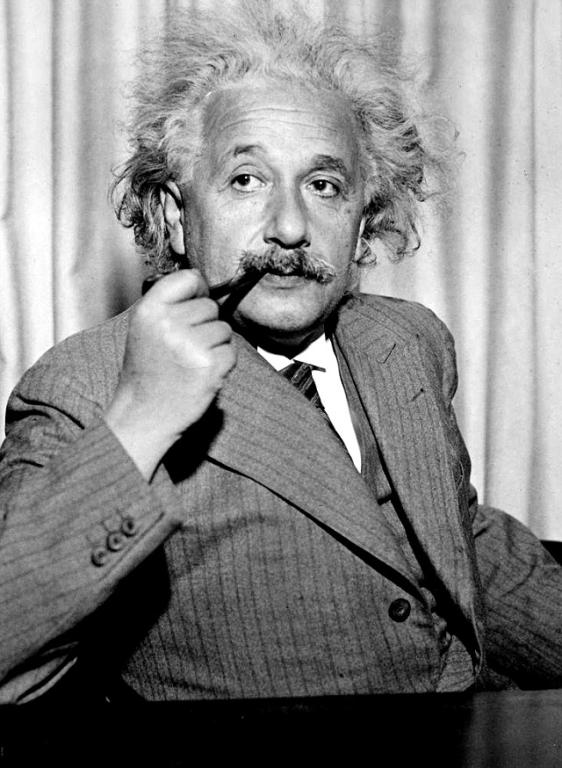
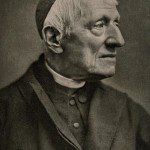
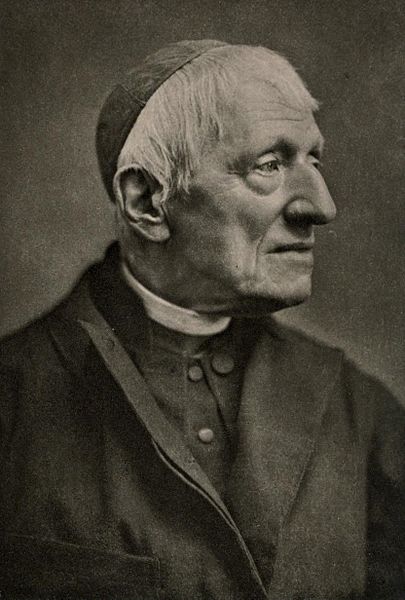

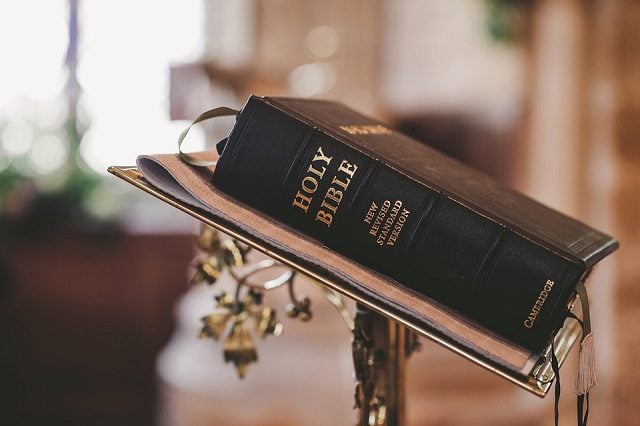
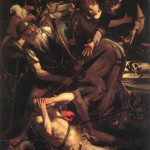
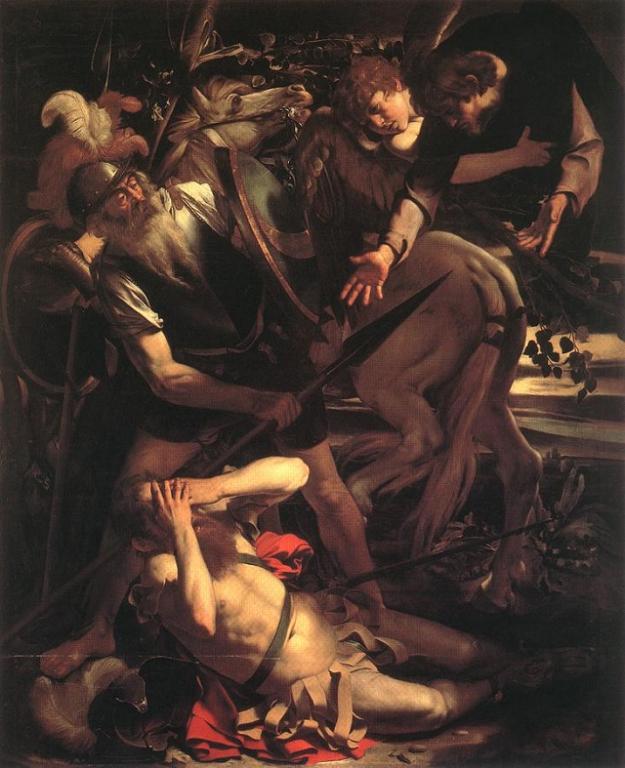
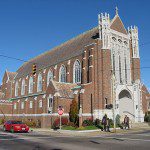
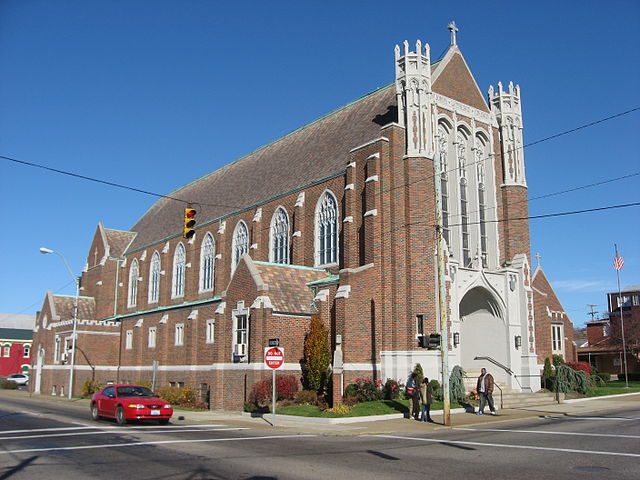




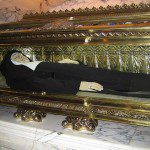
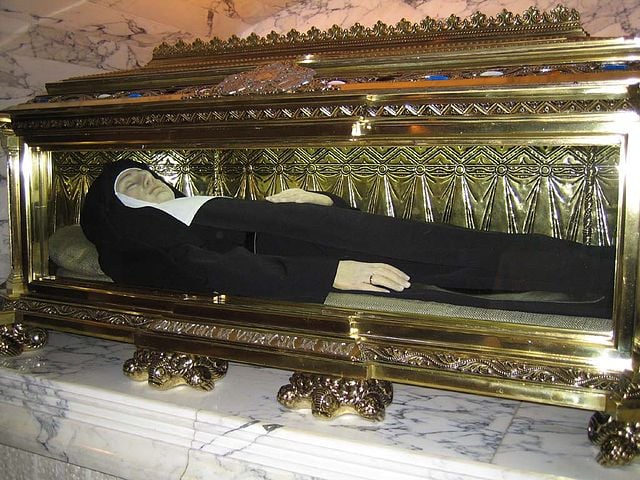






The Messiah: Jewish / Old Testament Conceptions
Way back in 1982, when I was an evangelical Protestant highly interested in Judaism (an interest I retain today, as a Catholic), I did a study of the Jews and their attitudes towards Jesus, and also their own notion of what the Messiah was to be like; what he would do, etc. I utilized many Jewish primary sources. I was particularly interested in what they thought about the Messiah prior to Christ (so that Jewish-Christian polemics and controversies would not be a factor), and which Old Testament passages they regarded as messianic, and how they specifically interpreted them.
I will proceed now to recount some of the fascinating results I found in my studies, with regard to the above factors. Unfortunately, I didn’t record many individual page numbers of citations, but passages in quotes are direct quotes; the rest is a paraphrase of the author’s conclusions. All sources are Jewish unless otherwise noted:
*
2) The Messianic Idea in Israel, Joseph Klausner, New York: Macmillan: 1955 (orig. 1921):
*
*
4) A History of Messianic Speculation in Israel, Abba Hillel Silver, New York: Macmillan, 1927:
Speculations on the time of Messiah’s coming were based on numerical figures in Daniel, supposed initiatory historical events, parallels of time in Scripture, numerical value of letters and astrology.
*
*
6) The Doctrine of the Messiah in Medieval Jewish Literature, Joseph Sarachek, New York: Hermon Press, 1932:
Isaac Abravanel (1437-1508; originally from Spain) wrote more about the Messiah than any other Jew before him. He followed the Talmud and the Midrash in his messianic interpretations. The following verses are messianic: Gen 49:10, Is 11:1-5, Is 61, Micah 5:2, Zech 9:9, chs. 12-13, Malachi 3:1. Is 9:6 applied to Hezekiah. Is 53 referred to the nation of Israel, as did the “son of man” of Daniel 7:13. The “anointed” of Dan 9:25 is not the Messiah.
* * * * *
Rabbi Moses Haddarshan states: “Immediately the Messiah, out of love, took upon himself all those plagues and sufferings, as it is written in Isaiah 53, ‘He was abused and oppressed.’ ” In the Rabboth, a commentary, 53:5 is quoted, and referred to the sufferings of the Messiah. In the Midrash Tillim, an allegorical commentary on the Psalms, printed at Venice in 1546, it is said at Psalms 2:7: “The things of King Messiah are announced in the prophets, e.g., in the passage Is 52:13 and 42:1, in the Hagiographa, e.g., Ps 60 and Dan 7:13.”
*
“Upon the testimony of tradition, our old rabbis have unanimously admitted that king Messiah is here the subject of discourse. We, in harmony with them, conclude that king David, i.e., the Messiah, must be considered as the subject of this prophecy – a view which is indeed quite obvious.”
*
Comparatively few Jews (i.e., those who didn’t take the “servant-as-Israel” view) believed that the passage referred to a person other than the Messiah. The kabbalistic Jews still largely held to the messianic interpretation of the passage. The Messiah is called “servant” in Zech 3:8 – a passage which is unanimously regarded as messianic, and also in Ezek 34:23-24. As for the collective interpretation: not one sure analogous instance can be cited in favor of a personification carried on through a whole section, without the slightest intimation that it is not a single individual who is referred to.
*
In 53:3 the subject is called a man. In 53:11-12 a “soul” is ascribed to him. “Grave” and “death” seemingly imply a singular subject. In the passages where Israel is called “Servant,” all uncertainty is prevented by the presence of the names of Jacob and Israel (Is 41:8-9, 44:1-2,21, 45:4, 48:20) and the plural is used alongside the singular (Is 42:24-25, 48:20-21, 43:10-14). Several factors in the passage rule out a collective. The Servant voluntarily bears sufferings (vss. 10,12) and he suffers quietly and patiently (v. 7).
Malachi 3:1: The allusion to Is 40:3-5 is undeniable. Ibn-ezra thought the messenger was the Messiah. Kimchi said it was an angel (see Ex 23:30), Jarchi, the angel of death. The early Christians unanimously thought it was John the Baptist. The same messenger referred to here is called Elijah in Mal 4:5. Jesus fulfilled the other two parts of the prophecy, i.e., going to the Temple and bringing in the New Covenant. God is obviously referred to in the divine “Me” and the clause “His Temple.” The divinity of the Messiah is logically deduced from the passage.
* * * * *
Postscript: Alfred Edersheim (1825-1889), a convert to Christianity from Judaism, in his Life and Times of Jesus the Messiah (2 vols., 1883), cited 456 passages in the Old Testament which Jewish commentators had interpreted as messianic (vol. II, pp. 710-743).
*****